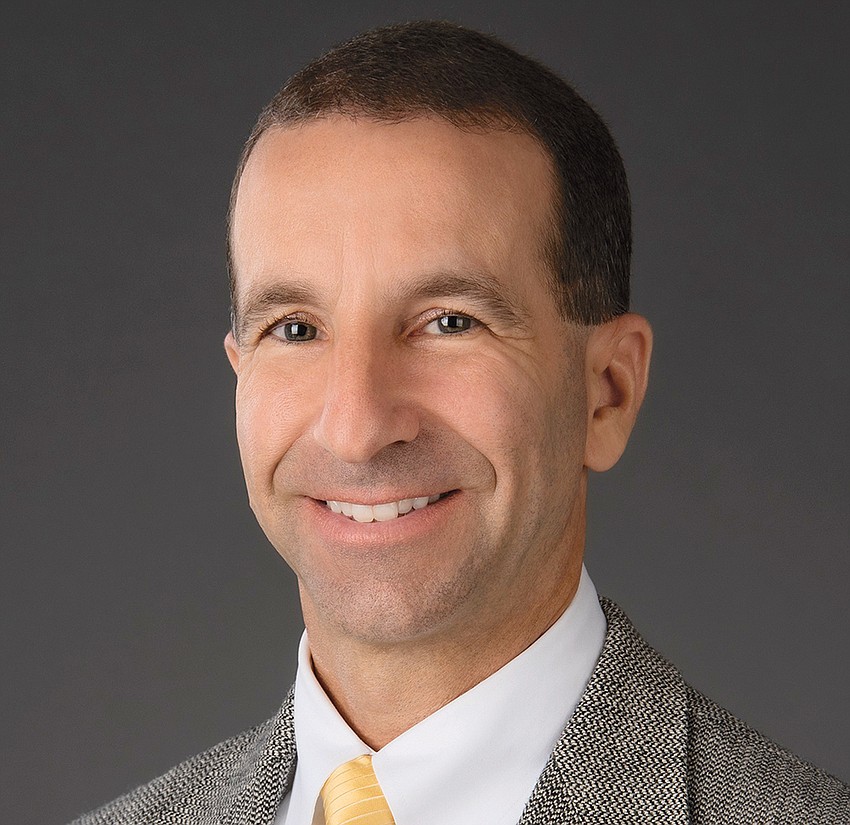
HOSPITALITY, TOURISM
President and CEO, Visit Jacksonville

The primary economic issues facing hospitality and tourism are continued labor shortages and economic uncertainty, including the continued rising costs of doing business.
The tourism/hospitality industry faced labor shortages and rising costs the last few years, and we expect those will continue.
We’ve seen business models change, such as cleaning a hotel room every third day during a stay, and there will be more in the year ahead.
We’ll see some of the larger businesses and corporations adapt AI-type procedures to maximize efficiency.
As for travel, Jacksonville saw the “return of travel” in 2022 and leisure tourism returned to a normal, pre-pandemic pace in 2023.
We anticipate the normal pace will remain in 2024.
Many travel forecasts and current trends indicate group and business travel is returning and we are experiencing those trends locally as well.
INFORMATION TECHNOLOGY
CEO, Newfold Digital

The primary economic challenge in the information technology sector is rapid technological advancements.
The advancements can swiftly render existing infrastructure, services and tools obsolete, necessitating continuous investment in technology updates and improvements to maintain competitiveness and meet customer expectations.
Newfold Digital, like many IT-sector companies, confronts the challenge of rapid technological advancements through a multifaceted approach. We nurture a culture of innovation, adaptability and curiosity, acknowledging curiosity’s vital role in staying ahead in a rapidly evolving landscape.
Central to cultivating innovation are cross-functional global teams, fostering diverse perspective.
We uphold our customer-first approach, listening to feedback and monitoring market trends to adapt swiftly to changing demands, such as introducing AI-powered solutions like our AI Writer.
We also prioritize continuous employee education, training and upskilling to keep our workforce updated on emerging technologies.
Our dedication to agility and R&D investment, ensures our strategies align with the pace of technological evolution, preserving our organization’s competitiveness and resilience amidst this challenge.
JEA & UTILITIES
CEO, JEA

The primary economic issue facing JEA and utilities is supply chain challenges.
As one of the region’s largest economic engines, JEA must accommodate growth to support Northeast Florida’s success.
The national supply chain crisis has caused equipment shortages and lengthy delays for utility supplies.
These challenges have impacted the ability of JEA (and other utilities) to serve the needs of residential and commercial developments that drive economic growth.
We are working to address disruptions, embracing new technologies and staying in close contact with our Northeast Florida builder community.
JEA has created multiyear buy plans, reconfigured designs to partially energize transformers, redeployed underutilized transformers, added more suppliers and evaluated each contract to decide the best course of action.
This is a national problem, but we’re leading from Jacksonville to find creative solutions.
JTA
CEO, Jacksonville Transportation Authority

The primary issue facing JTA in our implementation of autonomous vehicles is navigating current policies and regulations.
Navigating the pace of technological advances requires a regulatory framework to incentivize the incorporation of these technologies.
The deployment of autonomous vehicle technology as a public transportation option requires the creation or updating of regulatory and policy standards.
Aligning our “Buy America, Build America” commitments with the reality of a global marketplace is another.
We are actively engaging with international manufacturers, encouraging them to establish facilities in Florida, which could make the state a pivotal hub for autonomous vehicle manufacturing.
This would not only serve the U.S. market’s anticipated demand but also propel Florida into the forefront of AV technology innovation and job creation.
LAW
Certified Circuit Mediator, Miles Mediation & Arbitration
President, Jacksonville Bar Association

A current economic issue facing the legal profession stems from generative artificial intelligence.
AI is cutting-edge technology that has already cut into the use of attorneys for legal drafting.
In a noteworthy recent episode, an AI-generated legal brief was analyzed by the court and found to be replete with errors, resulting in lawyer sanctions and client harm.
As the technology and its accuracy improve, the pressures to eliminate lawyer involvement (and thus lawyer employment) will increase.
While there is obvious need for efficiencies in the delivery of legal services, delegating human tasks to algorithms is fraught with peril.
The Florida Bar is taking a comprehensive look at the safeguards needed for AI to benefit the legal profession and those we serve.
Economic Outlook Part I: Mark VanLoh, Christie Bird, Christian Oldenburg, David Garfunkel and Jackie Rowland. Story here
Economic Outlook Part II: Bryan Moll, Numa Saisselin, Abel Harding, Patrick Green and John Delaney. Story here
Economic Outlook Part III: Michael Corrigan, Sharon Rowlands, Jay Stowe, Nathaniel Ford and Blane McCarthy. Story here
Economic forecast: An optimistic outlook for 2024. Story here